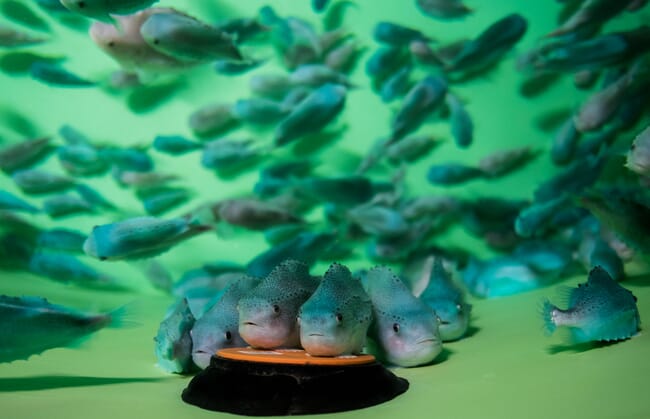A research team at the University of Swansea’s Centre for Sustainable Aquatic Research (CSAR) is taking a novel approach in a new project that hopes to unlock the performance potential of lumpfish.

© Terje Aamodt, Nofima
The team is hoping to learn more about the “cleaning” behaviour in lumpfish, and why only a minority of individuals display it. They have devised a series of behavioural tests for the fish that follow the same logic as the Hare Psychopathy Checklist. Individual fish behaviour is monitored across multiple situations and is turned into a personality profile, which is then used to predict the likelihood of future behaviours.
Lumpfish are used in salmon aquaculture to remove sea lice and eat other parasites that infect farm stocks. Though the method has been championed as an environmentally sustainable way to control sea lice levels, it isn’t fool proof. Only 20 percent of lumpfish actually clean salmon of parasites – the rest either ignore the salmon entirely or focus on feed pellets in the water.
It isn’t clear why a minority of lumpfish display cleaning behaviour and there are few trials that can provide data on cleaning activities. This is where the CSAR research team comes in. They hope that by observing and recording lumpfish behaviour, they can build personality profiles and identify individuals that consistently display cleaning behaviour.
Postdoctoral researcher Benjamin Whittaker writes in The Conversation, “[the project] involved testing for variation in activity, aggression, anxiety, boldness and sociality of individual lumpfish over repeated sessions, and then recording how these individuals interacted with salmon.”
The team found that most lumpfish completely ignored the salmon in their surroundings and did not interact with them. Whittaker and his colleagues noted that some lumpfish who were in the “bold and non-aggressive” personality group spent long periods inspecting the salmon, giving the individuals an opportunity to clean sea lice and reduce parasite numbers on farm sites.
The research also demonstrated that lumpfish could display an “active and social” personality that made the salmon flee. The team hopes that adopting this approach can provide new methods for studying animal behaviour.




